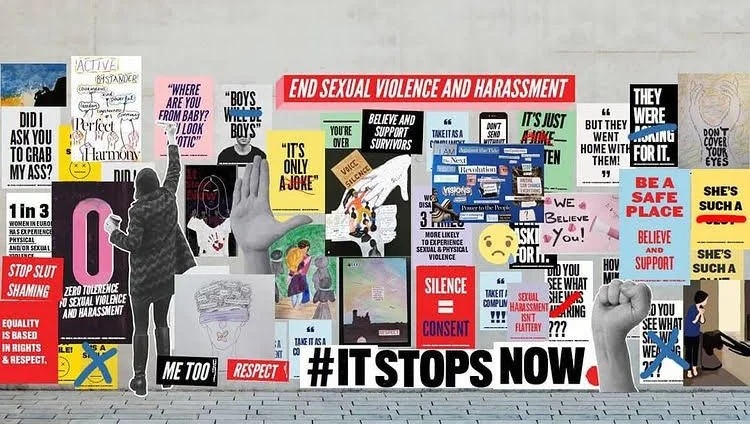UCC sets tone for new year with Bystander Intervention Week
The first week of the new semester was this year ushered in with the university’s inaugural Bystander Intervention Week: an effort to celebrate active bystanders in the UCC community and increase their number. The campaign adapted to Covid-19 restrictions and went virtual, hosting events, workshops and conversations to empower students and achieve a zero tolerance culture of sexual violence and harrassment at UCC.UCC is leading out on the development of the programme at higher education institutions across the country, the first also to mark its presence with a campus-wide initiative like that of Bystander Intervention Week. “Everyone has a role to play in preventing relationship and sexual violence,” the module reads, offering two paths to take upon witnessing abusive behaviour: “you can choose to be an active bystander and make an intervention, or alternatively, walk past.” Through 4 online workshops and one discussion-based live workshop, the module seeks to equip students with the skills needed to make an intervention and prevent sexual violence.Over the course of the week, the virtual campaign took advantage of the digital space and facilitated the creation of a virtual mural, comprised of artwork by staff and students inspired by the message #ItStopsNow. An Instagram takeover of the official @universitycollegecork page marked the importance of meeting students where they are: on social media. Through the platform, UCCSU Welfare Officer Jamie Fraser shared his personal experience of making an intervention, highlighting the real-life application of the skills learned during the module.“I encountered a situation myself during the summer - thankfully after doing the training - and very successfully used Bystander to intervene during a sexual assault,” the UCCSU Officer said, “Ever since then I’ve realised how important it was and how powerful it is to do something as simple as taking a couple of hours out of your day to do something as productive as [taking the module].”Detailing his experience over livestream on Instagram, Jamie explained the “gut feeling” he had when observing an increasingly hostile incident in the local area: “Whenever you get that feeling it’s always worth looking into.” He highlighted the ways in which the module gave him the insight into how to be an Active Bystander, how to know when someone might be in trouble and how to surmount the potential barriers to intervention - such as fearing retaliation or the reaction of other bystanders.Jamie shared the feeling of doubt he at first felt when encountering the situation, reluctant to believe someone was capable of perpetrating such an act on a sunny, summer day. “My brain was trying to convince me the whole time it wasn’t happening. By doing Bystander, I was able to channel [that gut feeling] and recognise that this does happen, and you have to look at it no matter how much you don’t want to believe it.”The conversation reflected that of the workshops facilitated throughout the week, the final workshop of five which allows students to achieve a Digital Badge for their efforts. Students explored scenarios of effective and ineffective interventions, discussing their learnings and reinforcing the importance of building a community of Active Bystanders.Bystander Intervention Week comes just months after the publishing of the 2020 Sexual Experiences Survey, a report which revealed that 29 per cent of female, 10 per cent of male, and 28 per cent of non-binary students had experienced non-consensual penetration by incapacitation, force, or threat of force during their time in college. The findings made it clear that higher education institutions had to take action on the problem of sexual violence in their colleges.Bringing the reality of the prevalence of sexual violence closer to home, the annual report of the Sexual Violence Centre Cork last year revelead that almost 40% of clients seeking help at the centre were students.Alongside the further roll-out of the module, the university is in the process of developing an action plan in response to the National Sexual Violence Framework, a plan which will be presented to the Minister for Higher and Further Education at the end of February 2021.The Bystander Intervention module consists of five online workshops: four self-led and one face-to-face. Following their participation in the module and completion of a creative reflection, students receive a Digital Badge and can first enroll for the programme at ucc.ie/en/bystander.


